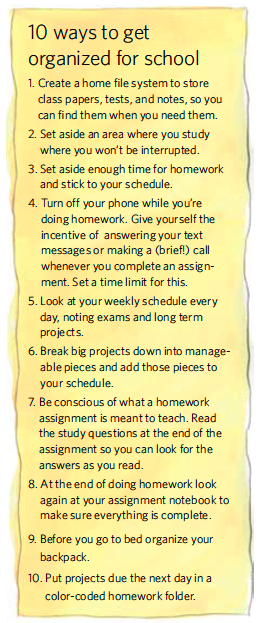Josh’s mom was beginning to worry. The 11-year-old boy was complaining of stomach aches.
His pediatrician could find nothing wrong, but they were more and more frequent, nearly every morning and often so severe that Josh missed school.
They seemed to be affecting his schoolwork, too: The child whom teachers described as “extremely bright” wasn’t turning in assignments, wasn’t preparing for tests, didn’t take notes or do reading for a long-term project.
When his dad suggested he was “goofing off,” Josh shouted: “That’s because I’m an idiot!” And he stormed off to his room.
 When Josh and his parents came to me at the end of 5th grade, and we did some tests, what was really happening became clear.
When Josh and his parents came to me at the end of 5th grade, and we did some tests, what was really happening became clear.
Josh had a problem with executive functions and lacked the skills that help people manage time, break a task into manageable steps, focus attention and discipline themselves. Because he couldn’t do those things, he felt the anxiety that caused his stomach aches, he avoided school, and worse, he was beginning to think of himself as a “jerk” and an “idiot.”
I explained to Josh and his parents that executive functions were situated in the frontal lobes—the part of the brain that develops last. When growth is complete, the neurons in the frontal lobes grow a covering, the myelin sheath, that carries signals in the brain much faster than before. The frontal lobes develop earlier in some kids and later in others. Until the process was further along, Josh could compensate by learning organizational skills.
As Josh became more organized, the stomach aches disappeared. Josh’s sense of self-esteem skyrocketed. He learned to sort his assignments in different colored binders and break a reading assignment into parts he could handle. By September, Josh was excited to go back to school and explained why.
His exact words were: “I know I can handle it.”
And now he really could.

